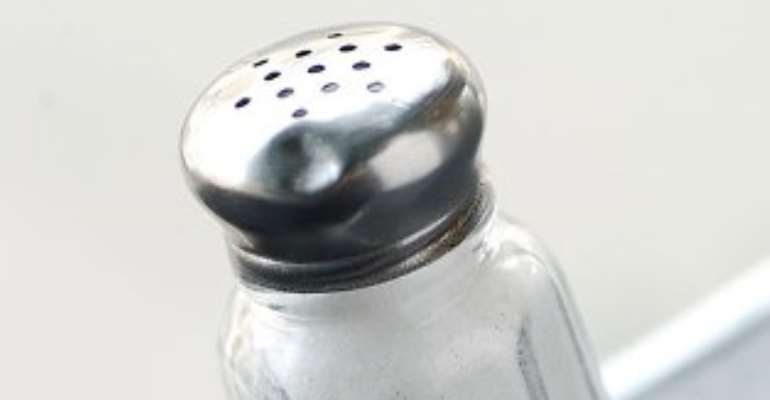'Hidden salt' in restaurant meals

Many popular restaurant meals in the UK contain large amounts of salt, a campaign group has said.
Consensus Action on Salt and Health (CASH) found that nearly three quarters of the main course dishes had levels in excess of ideal daily limits.
They say customers would have "no way of knowing" how much they were eating.
And the Trading Standards Institute, which carried out the research, called for calorie labelling on menus to include fat and salt levels.
They measured the salt content of 96 popular menu items from high street restaurant chains by purchasing them and having them analysed independently.
Findings
Six out of the 16 restaurant chains they looked at were serving a main course dish containing 6g or more of salt - the recommended adult daily limit.
Most computers will open this document automatically, but you may need Adobe Reader
Download the reader here
The saltiest main course was Old Orleans Chicken Fajitas, with 8.8g of salt per serving.
A Pizza Express American Hot Pizza contained 7.5g of salt per portion.
And a Wagamama Ramen of noodles in chicken soup with chicken, prawn, tofu and vegetables had 7.2g of salt per serving.
They also found hidden salt in desserts, starters and side dishes.
By comparison, at some of the restaurants surveyed, customers could choose a low salt meal.
A spokesman for the Old Orleans restaurant chain said they had been working very hard to reduce the salt content of their food: "We believe that the higher levels found were as a consequence of over-seasoning in the individual restaurant.
"This can occur because all our food is freshly prepared.
CELEBRITY CHEF
Raymond Blanc
There is no good reason for good chefs to mask the flavour of their ingredients by adding too much salt. Remember herby, sour, bitter and acid are also wonderful catalysts of flavour
Raymond Blanc, Manoir Au Quat' Saisons
"We are immediately retraining all our chefs to remind them of the appropriate use of seasoning."
And a spokesman for Pizza Express said: 'As part of the Food Standards Agency's Healthy Eating Forum, Pizza Express has a salt reduction programme in place that aims to reduce salt across its menu without compromising on taste.
"And as every pizza is handmade fresh in each restaurant, customers can request more, less or none of a certain ingredient to suit their needs."
Wagamama said they were "working towards reducing the levels of salt, fats and sugars across our menu."
Carrie Bolt, a nutritionist for CASH, said: "We would much rather that restaurants gave their customers the choice when it comes to salt in their meals - add less during the cooking stage and let people add more at the table if they want to.
"After all, no restaurant would dream of adding sugar to someone's coffee or tea without asking them - why don't they give people the same choice when it comes to salt?"
CELEBRITY CHEF
Gordon Ramsay
A high salt diet poses many health risks and I urge all chefs to consider how much salt they add to their dishes
Gordon Ramsay
Professor Graham MacGregor, chairman of CASH and professor of cardiovascular medicine at St George's Hospital in London, said: "It simply beggars belief that almost five years after the Food Standards Agency launched its salt reduction programme, and with all the publicity there has been about the 6g a day target, some high street restaurants have done nothing to reduce the amount of salt they add to their meals.
"By comparison, ready meals sold in supermarkets have had their salt content reduced considerably over the last few years."
The Food and Drink Federation (FDF) pointed out new research which showed that shoppers were buying less salty food.
The TNS Worldpanel market research had shown that between September 2006 and September 2008, British shoppers bought 3,794 tonnes less salt in five categories: bread, breakfast cereals, canned goods, crisps and savoury home cooking products.
Julian Hunt, director of Communications for the FDF, said: "This builds on the reformulation work our members have been carrying out over many years.
"Bread and cereals are two good examples of categories where salt reduction has been ongoing for some considerable time."
